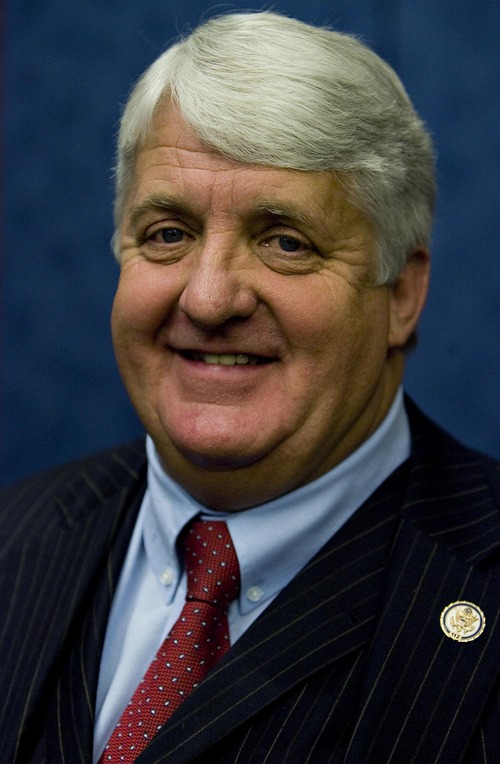This is an archived article that was published on sltrib.com in 2013, and information in the article may be outdated. It is provided only for personal research purposes and may not be reprinted.
Washington • Rep. Rob Bishop wants to know if the Defense Department signed off on the plan to close the control tower at Ogden's airport, just a few miles from Hill Air Force Base.
And on Thursday, he had the chance to directly ask Defense Secretary Chuck Hagel.
"It's a quick answer. I don't know," Hagel responded.
The working relationship between the base and the airport is at the crux of Ogden's campaign to save their air traffic controllers, who are slated to stop work in mid-June under the Federal Aviation Administration's plan to close towers at 149 smaller airports. Provo's tower is also on the chopping block because of the mandatory budget cuts known as sequestration.
Hagel told Bishop he would look into it, but Bishop didn't drop the topic so easily, noting to the secretary that the airspace in Ogden is shared by the military and private sector, meaning the loss of controllers could increase the risk for a midair collision and force the military to change its training and testing plans.
"I understand exactly your point and the reasons you mentioned," Hagel said. "Based on what you said, it could be … it could be a potential problem."
Hill's commander shares Bishop's concern.
"The proximity of Hill Air Force Base and the Ogden airport creates significant airspace coordination issues that require constant communication between Air Force and FAA controllers," said Col. Kathryn Kolbe, the commander of the 75th Air Base Wing. "We have approached Air Force Materiel Command and have requested they advocate with the FAA to reconsider the closure of the Ogden tower."
Bishop made the same case to FAA Administrator Michael Huerta in a letter dated March 12. He has yet to get a response.
"It is disturbing to me that the FAA would be proposing this action without having entered into direct and substantive consultations with the United States Air Force, or the 388th and 419th Fighter Wings, regarding the negative impacts to national defense," he wrote.
The FAA has pressured cities to pick up the air-control costs and a small number are considering it, while many are urging the administration to change its decision, and some are looking for other legal remedies.



